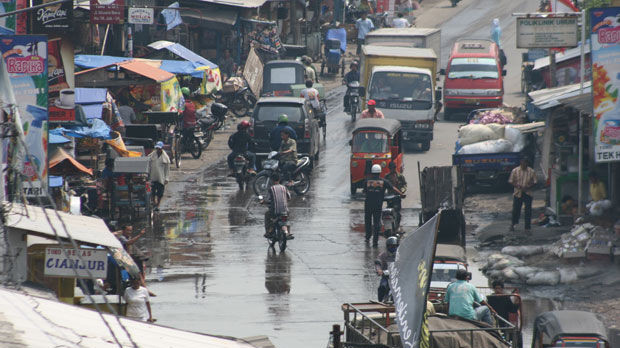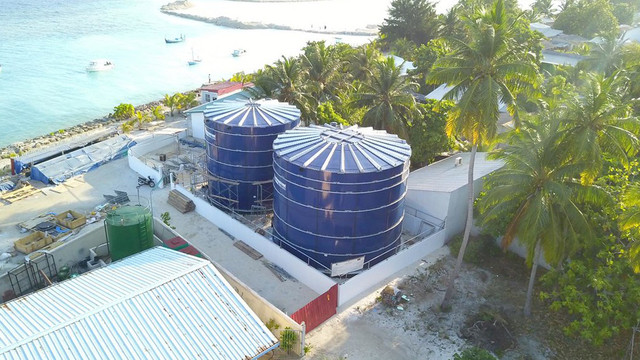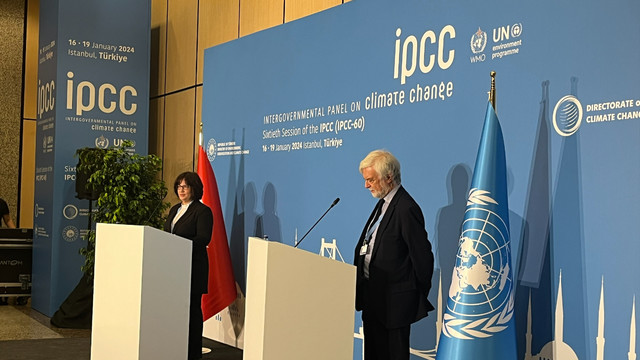OWG 'zero draft' is a huge step forward: now let's get practical
The OWG's 'zero draft' on Sustainable Development Goals (SDGs) is a marked improvement on previous versions, but we still have a long journey ahead, says IIED director Camilla Toulmin


Urban-rural linkages have been 'beefed up' in the latest draft of the UN's Open Working Group on the Sustainable Development Goals
The International Institute for Environment and Development (IIED) contributed to an Independent Research Forum (IRF2015) assessment [PDF] of the working document for the 11th session of the OWG, in which we highlighted areas for improvement. We're really pleased to see many of our suggestions are reflected in the latest draft.
Strengthening resilience
It's good to see a more consistent emphasis on strengthening resilience from the household to global level. This needs to be supported by adequate indicators, policy and institutional reforms and sources of finance. Targets to strengthen resilience of the most vulnerable depend upon adequate vulnerability mapping.
Likewise, the target on eradicating extreme poverty should use nationally determined, locally differentiated poverty lines that reflect the real cost of living in urban and rural areas within a country. To support meeting such a target, we will require greatly enhanced poverty mapping down to the level of data on housing conditions, infrastructure and service provision to each street and neighbourhood.
Ending hunger
The goal on ending hunger, upon which IRF2015 produced significant commentary, has been beefed up by the addition of targets on trade-distorting subsidies, sustainable and resilient food systems, market stability, conduct of multinational corporations, investment in infrastructure and R&D, obesity and urban-rural linkages.
Inequalities
We applaud the addition of a goal on inequalities, which allows inclusion of specific targets on the subject as well as clearer communication of its huge importance.
Means of implementation
Another important structural change is that the document sets out in detail some of the actions requiring international cooperation that are necessary to deliver the proposed goals (the so-called "means of implementation"). These include policy coherence, finance, access to technology and markets, and capacity development.
We think it essential to get to this level of specificity about how achieving the SDGs at a national level depends on a set of international actions. Still, as currently structured, the means of implementation are listed under goal 17 in separate sections according to which of the other 16 goals they chiefly support. The overall effect is clunky and would benefit by adding a concise set of priority, cross-cutting actions.
Continuing on the theme of implementation, I notice that some of the goals (e.g. that on energy) include a set of desired outcomes, followed by other targets that address nationally actionable key levers of change (essential elements of the "how"). This seems a useful model to adopt universally, while taking care to leave space for policy responses appropriate to regional, national and local conditions. In this way, the framework would combine clearly identified desired outcomes, and critical actions at the national and international levels.
Room for improvement
The overall SDG framework still lacks a good means to articulate the inter-linkages among targets that would make joined-up implementation more likely. This doesn't necessarily have to be part of the list of goals and targets, but working on it now might also help streamline the list of targets. IIED is exploring a possible approach, along with our IRF2015 partners.
Linked to this is the design of architecture for the integrated implementation of the SDGs. Suitable elements would include integrated local, national and regional sustainable development strategies, and associated institutions and finance flows. The current targets 1.8, 13.3 and 17.1 provide a basis for elaborating these ideas, and doing so could make the implementation of the SDGs much more effective.
Another addition relates to the chapeau [PDF], which was released in advance of the OWG11 revised set of goals and targets. It recalls and confirms continued endorsement of a large number of relevant international agreements. But when it comes to the SDGs themselves, it simply states that they comply with the criteria agreed in the Rio+20 outcome document, including – most notably – the quality of being universally applicable while reflecting different national circumstances.
There is still a long, hard journey ahead to reach a point where this statement can be said to be true, and some had hoped that the chapeau would help us move along this path, rather than merely reiterating the destination. I recognise this is a thorny issue and hope that IIED's work, including our focus on the particular circumstances and interests of members of the Least Developed Countries Group, can help the OWG negotiate a safe way towards getting a satisfactory outcome.
What comes next?
At the level of targets the most important task ahead for the OWG is to identify those targets that address the most critical levers of change and to find a universally acceptable means of formulating these so that they can be preserved while cutting down the current 212 targets to a more manageable number. For IIED, the key areas for targets include:
- Secure tenure of land and other natural resources
- Incorporating environmental degradation and social inequalities into the metrics, policies and incentives used to steer economies and the management of natural resources, including forests and marine resources, and agriculture and food systems
- Gender equality
- Access to energy for not only basic household needs but also productive purposes and public services, and
- Access to locally managed funds for development.
Let's also find ways to amend targets and finesse the language such that the document speaks to business, civil society and local government in a relevant and understandable way. Moreover, I hope there will still be room to incorporate a small number of new ideas for compelling targets (such as one on all LDCs graduating from this category by 2030).
It may also be worth taking stock of the critical levers of change that cannot be translated into targets: as Martin Khor of the South Centre pointed out at a recent Chatham House event in which we both participated (on the record!), the SDGs cannot address everything we need in our post-2015 agenda.
Watch this space…
This blog was first posted on www.IRF2015.org, which will be running a series of blogs by IIED experts examining the implications of the SDGs 'zero draft' for issues such as energy, forests, human settlements and marine resources.
On 7 July 2014, IRF2015 will be hosting a side event at the High-level Political Forum on sustainable development in New York, focused on grounding the SDGs in national realities.



